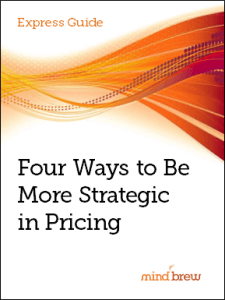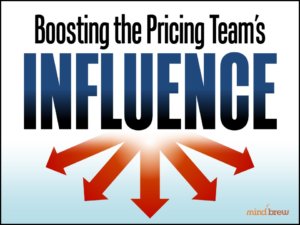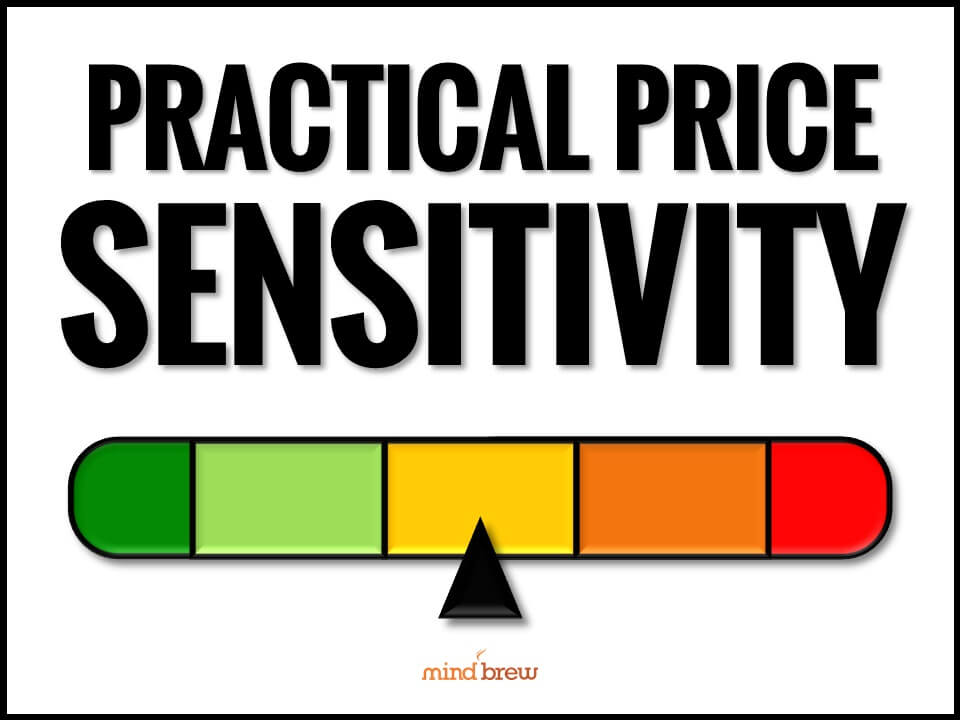As a big deal is being priced and negotiated, the risk of losing tends to overwhelm all other internal considerations and deliberations.
After all, winning this big deal could “make the quarter.” And by “taking the deal off the street” you could deprive your competitors of some financial oxygen. So in the moment, the perceived risk around losing a big deal by pricing too high will often far outweigh the risks of winning the business at prices that are too low.
In many cases, this dynamic is exacerbated when you have an incomplete or inaccurate view of the risks on one side of the equation.
For example, some will rationalize that even if you get it wrong on a big deal, you can make up for it somewhere else. While this may be true in theory, it rarely plays out in practice.
First of all, it’s a big deal. So any damage or shortfall is likely to be significant as well. As such, it takes a lot of smaller deals…all priced better than normal, mind you…to make up for a gutter ball on a big deal.
Secondly, you actually have to take deliberate steps to “make up for it somewhere else.” Unfortunately, the best of intentions will often go out the window as soon as the deal is done and the next opportunity arises.
And besides, who’s going to volunteer to have their next few deals be the ones that will make up the difference? Bueller? Bueller?
Another common rationalization of risk is that regardless of its size, it’s just one deal. So if you end up pricing way too low, the effects will be isolated and contained to just that deal.
There are at least two problems with this notion:
- Today, procurement functions are so sophisticated that virtually any deal you do with a customer will likely affect every other deal you’ll try to do with that customer, now and into the future. You can try to do something different on other deals, but you’ve handed the buyer something they can leverage to their advantage…and they will.
- As much as you might like to keep an overly aggressive deal a secret, other customers will often find out about it. Through deliberate intelligence gathering or just careless chatter, what’s hidden has a way of becoming known. And before long, you can have many other customers demanding similar concessions.
But one of the most insidious risks associated with pricing a big deal too low is the effect it can have on internal perceptions and behavior. Internally, an outsized deal tends to get a lot of attention and generate a bit of buzz. The whole sales team…no matter how far flung they may be…will very likely hear about it.
That one deal can then become a sort of mental benchmark or reference for other deals…even deals that bear very little resemblance. It can influence internal perceptions around how far the company is willing to go, what’s “fair” and reasonable, and what people can get away with.
While the resulting change in behavior may not be obvious, the perception that there’s an unspoken lower floor can cause your entire sales team to question the prices they’re pushing for and make them more willing to acquiesce across the board.
Everyone wants to win the big deals. That’s a given. But in getting there, you shouldn’t ignore or rationalize away the risks—because winning a big deal at the wrong prices can cost a lot more than you think.














